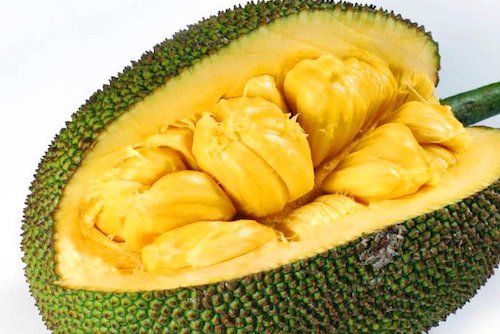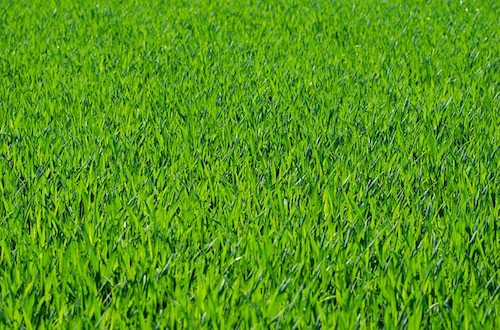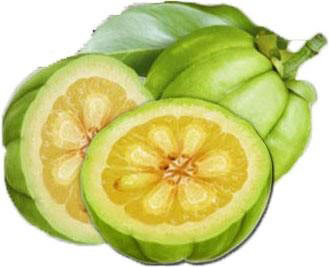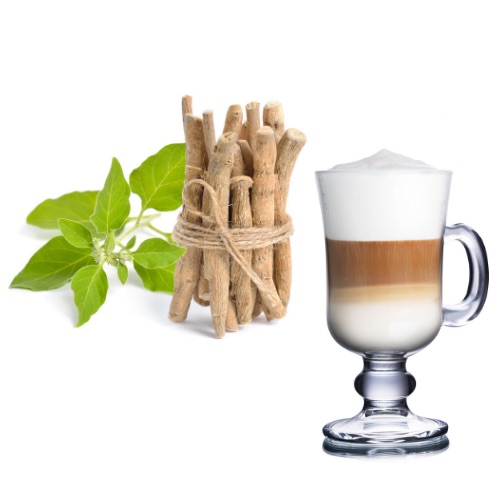Peanuts are known as “Kalaya” in Ayurveda. It is recommended by vaidyas for weight loss in obesity, PCOS or PCOD, and erectile dysfunction.
Peanut, which has the scientific name “Arachis hypogeal” is a small dicotyledonous herb produced annually and consumed as food or snack. It is planted through seedlings and developed through self-pollination into ovaries to form a peanut pod. This seed is believed to have originated in Central America to spread to other continents. The nut is now widely found in India, China, Africa, and other nations of the world.
Read this article in Kannada ಕಡಲೆಕಾಯಿ ಅಥವಾ ನೆಲಗಡಲೆಯ ಆರೋಗ್ಯ ಪ್ರಯೋಜನಗಳು
Table of content
Prevents the formation of gallstones
Helps to improve brain health:
The Health Benefits of this legume was explained in ayurvedic texts somewhere around the 14th century. Ayurveda Acharyas have grouped them under beans. These beans are referred to as ‘Kalaya’ in Ayurveda.
This bean balances kapha dosha and pitta dosha. It can also cause indigestion and ama the body toxin when eaten in excess. They have ruksha guna or tissue drying properties. Hence it is not recommended for persons who have Vata dosha as predominant.
The seeds of this plant are rich in fat, protein, Vitamin E, folate, and other essential healthy nutrients that provide medicinal benefits to the body. These legumes have been studied to help treat many health problems such as weight loss (Read Ayurvedic Tips for Weight Loss After Delivery), skin problems, hair problems like hair loss, memory loss, diabetes, cancers, and much more.
When it comes to the health benefits of peanuts or other leguminous nuts, the list is long and may not be discussed in just one article for a better understanding of their numerous benefits. These legume nuts are an essential nutritional source in some underdeveloped and developing countries due to their numerous nutrients. Below are the key health benefits of peanuts based on the principles of Ayurveda:
Helps to Prevent diabetes:
Kapha dosha imbalance causes diabetes. Since these nuts balance Kapha they help in lowering blood sugar levels.
A recent study has shown that this legume is equipped with an essential nutrient such as manganese to help minimize the risk of diabetes disease by 21%. ( 1 ) Manganese plays a vital role in blood sugar regulation, calcium absorption, and fat and carbs metabolism. They are also a good source of healthy protein.
Prevents formation of gallstones:
Pitta dosha balance prevents gallstones. Since peanuts balance pitta incidences of gall stones formation is reduced in people who consume peanuts
Regular consumption of this legume helps in putting gallstones at bay. ( 2 )Studies have shown that weekly consumption of 2 tablespoons of peanut butter or 1 oz of peanut is capable of reducing the chances of gallstones or gallbladder by 25%.
Improves heart health:
These nuts contain high levels of polyunsaturated and monounsaturated fats which are helpful for a healthy heart. They are also equipped with oleic acid and poly-phenolic antioxidants to help lower bad cholesterol or LDL, enhance good cholesterol levels, and prevent any forms of heart diseases such as corollary artery disease as well as stroke by improving the profile of healthy blood lipids. ( 3 )
Helps to prevent cancer:
The high concentration of beta-sitosterol (SIT), a phytosterol form, helps prevent cancer by hindering tumor growth in the body. This has been discovered to be more helpful in women than men. Research has shown that the consumption of peanuts two times a week is capable of reducing the risk of getting cancer by 27% and 58% in men and women respectively. ( 4 )
Helps in pregnancy:
Due to its high concentration of folate, the peanut is studied to help women during pregnancy. The studies showed that pregnant women who eat 400 g of folic acid either before or during their early stage tend to reduce the development of having a baby with a neural tube defect with a reduced rate of 70%. Apart from this, the consumption of peanuts during pregnancy reduces the chances of allergic diseases such as asthma in children.
Helps to improve brain health:
These nuts are referred to as “brain food” due to their concentration of vitamin B3 or niacin which has been found helpful in boosting memory and helping the brain function optimally. Peanuts are equipped with flavonoid which aids and boosts the flow of blood to the brain. ( 5 )
Helps in weight management:
Due to their tissue drying property (ruksha guna) these beans reduce fat tissues. Kapha balancing property of these nuts also helps in weight loss. It is the best ayurvedic way to manage obesity.
Protein, fat, and fiber contained in peanuts have been found helpful in minimizing the risk of weight gain. These essential nutrients make peanuts a high-satiety food, keeping you full and satisfied for a longer period; hence, reducing food cravings, and lowering your appetite to prevent overeating. They also give energy and increase your metabolic rate. Peanuts combine all these attributes together to help in weight management.
Helps in Erectile Dysfunction
Since Peanuts are heart-friendly and also help in weight loss, they have preferred beans for klaibya or erectile dysfunction.
Norman Feed says “Peanuts have been described as “dietary Viagra”. Peanuts are rich in L-arginine, which causes vasodilatation in blood vessels. L-arginine is a precursor of nitric oxide, which is responsible for inducing smooth muscle relaxation. Research has shown that the levels of L-arginine are higher in peanuts. Additionally, peanuts are a very good source of monounsaturated fats and feature an array of other nutrients that have been shown to promote heart health. Peanuts are also excellent sources of vitamin E, niacin, folate, protein, and manganese”. ( 6 )
Helps to Prevent hair loss:
Peanuts are an excellent source of vitamin C, a nutrient that enhances collagen production for keeping hair tissues together. They also have L-arginine which is used as a remedy for male pattern baldness and omega-3 fatty acids which help strengthen hair follicles for healthy hair growth.
Flushes out excess toxins for healthy skin:
Skin is the location of bhrajaka pitta. When pitta is balanced skin gets a good complexion and glow.
Peanuts are equipped with healthy monounsaturated fats resveratrol which is essential for clear, flawless, and glowing skin by flushing out toxins that result in excess oil and breakouts on the skin. Another skin benefit of peanuts is their composition of anti-aging and antioxidant properties. Nutrients such as vitamin E and vitamin C help in preventing aging symptoms such as fine lines, spots, and wrinkles, and keeping the skin healthy and younger.
Promotes healthy growth in children:
The amino acids found in proteins contained in peanuts promote healthy growth and development. This benefit has been found useful mostly in children’s growth according to some studies.
Benefits of Soaked Peanuts:
Like any other beans, Peanuts when soaked overnight become soft and easy to digest. Soaked peanuts reduce acidity and stomach cramps. This also provides dietary fiber which helps to relieve constipation.
Other Uses of Peanut
Peanut is a leguminous plant which means it helps in soil nitrogen fixation. This improves the fertility of the soil. Usually, they use these plants in rotating crops. Peanut oil is used as cooking oil in India. It is a healthy alternative that resists rancidity. The residue protein-rich cake after extracting oil is used as a supplement to cows and also utilized as fertilizer. Groundnut oil is used in paint, varnish, lubricants, insecticides, and nitroglycerin. It is widely used in the cosmetic industry to prepare cosmetics and soaps. Groundnut shells are used to manufacture hardboard, abrasives, fuel, cellulose, and glue.
Culinary Uses of Peanut
Peanuts are thought to be nut; however, it belongs to the family of legume in relation to soy, lentils, and beans. Varieties of products are made from peanuts, and they include peanut flour, peanut oil, peanut butter, and peanut protein to be used as ingredients in foods such as cakes, snacks, desserts, sauces, and confectionery.
Peanuts are usually consumed dry-roasted, boiled, salted, deep-fried, soaked, and rarely raw. They are also called varieties of names such as groundnut, monkey nut, earthnut, goober peas, or pignut.
Nutrition Facts about Peanuts
Peanuts are equipped with numerous nutritional values similar to most essential nuts that mainly contain fats and protein. 1 oz of Peanut (according to USDA National Nutrient Database) has the following key nutritional values:
- 168 calories
- 2.6 g of fibre
- 4.9 g of protein
- 7.2 g of carbs
- 14.6 g of fat
- 1.3 g of sugar
Other essential nutrients of peanuts are copper, vitamin E, vitamin B3, folate, biotin, vitamin B1, molybdenum, phosphorus, and manganese.
Conclusion
On a final note, having considered the health benefits of peanuts, it appears that the consumption of peanuts is unavoidable. The benefits are not limited to the above, but it is worthy of mentioning that peanut fat and oil-free peanut flour according to studies, have the ability to lower bad cholesterol and have been found to offer protective effects to the heart.
Another significant advantage of peanuts is that they are affordable to the common man with a low income. You don’t need to consume too much of them to enjoy the numerous benefits of peanuts. One or two tablespoons or 1 ounce of peanut is enough to gain all the nutritional values attributed to them. Try it today!
(WhatsApp Dr.Savitha Suri @+ 91 6360108663/ to know more about ayurvedic treatment and remedies )
Author: Dr. Savitha Suri Consultant Ayurvedic Physician
Call us at +91 9945995660 / +91 9448433911
WhatsApp + 91 6360108663/






